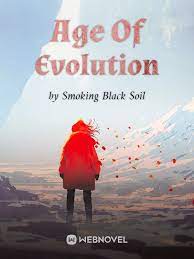Life of Being a Crown Prince in France - Chapter 89
- Home
- Life of Being a Crown Prince in France
- Chapter 89 - Chapter 89 Chapter 88 Consensus of the Paper Mill Requesting Monthly Tickets
Chapter 89: Chapter 88 Consensus of the Paper Mill (Requesting Monthly Tickets)
The papermaker carefully lifted the paper-forming frame, which is the “sieve,” and placed it on a rack surrounded by several furnaces to increase the temperature.
After more than half an hour, a craftsman removed the paper-forming frame and carefully peeled off the paper on top, respectfully presenting it to Joseph, “Master, take a look, it’s already dry.”
Under normal drying processes, it would take at least half a day; the use of high heat to speed up drying was purely for demonstration to Mirabeau.
Joseph rubbed the paper in his hands, which was crisp and quite thick, with uneven texture inside; one could say its quality was rather poor. But it was undoubtedly a sheet of paper—made from wood.
He passed the paper to Mirabeau with a touch of regret, “The craftsmen and I are first-timers with this new technology, so the quality of the product isn’t too good.”
However, he was not in a hurry since papermaking largely depends on experience.
How much additive to use, the time and temperature for boiling the wood, the use of bleaching agents, and the technique of drying—these all require repeated experimentation to find the optimal solution that produces a qualified paper sheet.
But with the correct technical theory, it’s only a matter of time before a mature process is figured out.
Mirabeau excitedly examined the paper in his hands, fully aware of what this meant—the French paper market alone was worth millions of livres.
If exported to all of Europe, the market was at the very least at the ten-million level!
And predictably, the papermaking techniques of any European country were far more expensive compared to wood-based paper, meaning there was no stopping the dumping of wood paper.
Joseph, seeing his exhilarated expression, smiled and said, “Using my method, we could reduce the paper production cost to one-seventh of the current paper prices. Of course, we don’t have to go that low, selling at two-thirds of the market price would be fine, leaving us a larger profit.”
Mirabeau keenly caught the word “we” and looked at the Crown Prince with great anticipation.
Joseph deliberately let him “suffer” for a few seconds before saying, “As you can see, rolling out this new technology on a large scale requires a significant capital investment, as well as a lot of energy. I couldn’t do this alone.
“So, I would like to invite you, and of course, your friends, to invest together and build a large number of paper mills at the fastest speed and take over the market. And this papermaking technology will be my share in this partnership.”
“That would be wonderful!” Mirabeau’s eyes sparkled with joy as he pondered, caressing the head of his cane, “So, how much of a share do you wish to hold?”
“20%,” Joseph replied. As the paper technology was meant to rally and divide the Assembly of Notables, he did not want too much of a stake.
Mirabeau understood the Crown Prince was conceding profits and immediately beamed, “You are far too generous! I believe we can set a time for Viscount Dico, Viscount Peillier, and others to discuss this papermaking investment. Oh, and the tax legislation.”
Joseph nodded with a smile, “I fully endorse your proposal.”
After they set the time and place for their meeting, Mirabeau couldn’t wait to return to Paris, eager to meet with a few of his political allies.
Once inside the carriage, his curiosity got the better of him, and he turned to ask, “Your Highness, can you tell me how those woods are cooked into liquid?”
“You need to add some chemicals,” Joseph replied with a smile as he helped close the carriage door.
Of course, he wouldn’t reveal just yet that it involved the addition of sulfites. After all, knowledge can be simple when shared, but without guidance, it might take half a century before wood-based paper technology emerged.
The next day.
Accompanied by three noblemen, Mirabeau arrived at Joseph’s paper mill—to prevent any leaks, Joseph had already purchased this small workshop.
“Your Highness, this is Viscount Dico. This one is …”
Following Mirabeau’s introduction, the three people bowed to Joseph in succession.
Soon after, another carriage arrived. Archbishop Brienne stepped down from the carriage.
And so, in a dilapidated and simple workshop, the Crown Prince sat on the paper drying rack, the Chief Minister and Count Mirabeau sat on a cart used for transporting paper, and the others stood leaning against the shed, beginning a discussion crucial to the future of France.
However, the negotiation process went very smoothly.
Brian promised to push forward the implementation of the “Company Law,” “Patent Law,” and other legislations together with the Crown Prince. He would also lower the tax rates for certain stamp duties.
Joseph reiterated his commitment to restart Anglo-French trade negotiations within two months and to resign the “Eden Treaty” at the previously discussed tariff rates.
Mirabeau and the others assured that they would persuade their peers in the Assembly of Notables to support the tax bill. Since the manipulative forces behind the High Court were the great nobles of the Assembly, this meant their spokespersons in court would no longer obstruct the tax legislation.
What everyone spent the most time on and showed the most enthusiasm for, however, was the discussion about establishing a papermaking company.
The final agreement was that the five people present, excluding Joseph, would contribute a total of 3.6 million livres to build a large papermaking workshop in Saint Antoine Town, Lyon, and Bordeaux respectively, reaching the production capacity to satisfy all of France’s paper needs within half a year.
Afterward, depending on the situation, they would invest more to expand production and start exporting until they could dominate the European market.
Joseph would provide the technology, holding a 20% stake, while the others would divide the remaining 80% according to their investments.
However, to accommodate the numerous papermaking workshops in France, Joseph specifically requested that the company must provide pulp to other workshops to allow them to carry out downstream processing and maintain their livelihood.
After all affairs were discussed, everyone was very pleased.
Brian was the first to rise and take his leave. Half an hour later, Mirabeau and the others also left.
…
On the street opposite the Paris High Court, a wooden platform about six or seven meters square had been erected.
The platform was surrounded by dark grey curtains. Around two or three hundred people crowded below it, watching the performance on stage with rapt attention.
When the actor playing Judge Osman, the big villain, died howling after mistakenly eating a poisoned cake out of greed, the audience erupted into thunderous cheers.
Someone turned and pointed toward the distant High Court, shouting:
“Do you see? This is the end of shameless, greedy officials!”
“You should meet the same fate!”
“You bunch of rats, maggots, dare you come out?”
Inside the conference hall on the third floor of the High Court, several judges hearing the end of the play’s music breathed a sigh of relief and redirected their attention back to the conference table.
With a disdainful expression, Vergniaud tossed the stack of documents in front of him forward and snorted, “There’s nothing to consider! No matter how Brienne changes it, this thing will never get registered!”
What he had thrown out was the new tax bill that Brienne had just submitted that morning.
Dibor looked at another judge beside him, who had a pointy chin and always wore a surprised expression at the corners of his eyes. They exchanged glances, and he slowly opened his own copy of the bill, calmly saying, “I think we should discuss it a bit, maybe we will come to a different conclusion, no?”














